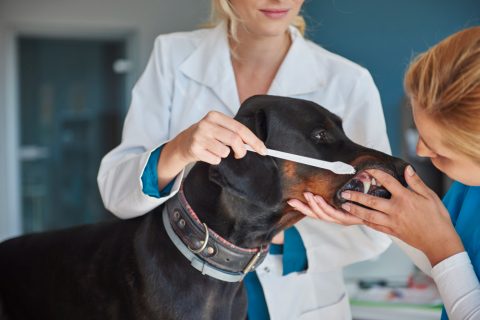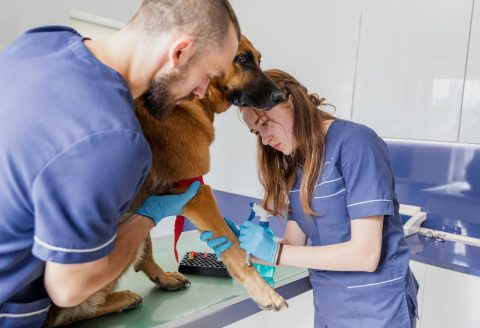Dogs can surprise us with all kinds of smells, but a strong fishy odor is one that tends to raise alarm bells. While the occasional whiff of “doggy” scent is normal, a persistent fishy smell could signal an underlying issue that needs attention. Understanding where the smell is coming from and what it could mean is essential for your dog’s health and comfort.

Contents
Why Does My Dog Smell Like Fish?
A dog that smells like fish isn’t trying out a new cologne—it’s often a sign that something is amiss. The source of the odor could be anything from anal gland issues to infections or even dental disease. Here’s a breakdown of common causes:
Anal Gland Issues
Dogs have small anal sacs located near their rectum that release a distinctive, often fishy-smelling secretion. Normally, these sacs are emptied during bowel movements. But if they become blocked, inflamed, or infected, they can produce a strong, unpleasant odor.
Fecal Impaction
When the fluid in the anal glands thickens and doesn’t get expressed naturally, it leads to impaction. This causes discomfort and may result in a strong fishy smell, especially if the area becomes infected.
Anal Sacculitis
If the anal glands become inflamed or infected, the sacs may fill with pus and blood. Signs include scooting, straining to poop, excessive licking near the anus, and a hunched posture. Manual expression by a vet is often required.
Anal Gland Tumors
Though rare, tumors in the anal glands can prevent natural expression, leading to swelling and fishy odor. These tumors are serious and often metastasize quickly, so prompt veterinary care is essential.
Dental Disease
A dog with fishy-smelling breath may be dealing with periodontal disease. Inflammation, bleeding gums, and even abscesses can lead to foul mouth odors. Symptoms include:
– Excessive drooling
– Difficulty chewing
– Blood in saliva or on toys
– Reduced appetite
Untreated dental issues can allow bacteria to enter the bloodstream, potentially affecting vital organs like the heart.
Urinary Tract Infections (UTIs)
A fishy smell coming from your dog’s urine could indicate a UTI. These infections can cause discomfort and, if left untreated, may spread to the kidneys. Look out for:
– Frequent urination
– Blood in the urine
– Excessive thirst
– Licking the genital area
Female dogs are particularly prone to UTIs due to their anatomy. Recurring infections should be evaluated for underlying causes.
Skin Allergies
Dogs with allergies may lick and scratch certain areas excessively, leading to bacterial or yeast overgrowth and a resulting fishy smell. Dry, irritated skin can become a breeding ground for microbes.
Helpful remedies include vitamin E oil for hydration, fish oil supplements for skin health, and diluted apple cider vinegar to reduce yeast. Always consult your vet before trying new treatments.
Yeast Infections
Yeast can produce a musty, fishy scent, especially in warm, moist areas like the ears, paws, and skin folds. Causes include:
– Allergies
– Hormonal imbalances
– Weakened immune system
Common signs:
– Redness or discoloration
– Itchy, flaky skin
– Foul-smelling discharge from ears
– Head shaking or tilting
Water trapped in the ears after swimming can also lead to yeast infections. Make sure your dog’s ears are properly dried after water activities.
Female Dog Concerns: Vaginitis or Pyometra
If you have a female dog, especially one that isn’t spayed, a fishy odor could stem from a vaginal issue.
Vaginitis
This involves inflammation of the vaginal area due to an imbalance in yeast or bacteria. It often causes itching and noticeable odor.
Pyometra
A serious condition that occurs in unspayed females, pyometra is a uterine infection that can be life-threatening. Symptoms include vaginal discharge, lethargy, and loss of appetite. Immediate spaying is typically required.
Stay Alert to Your Dog’s Scent
A sudden or persistent fishy odor shouldn’t be ignored. From anal glands to dental issues, the root cause can vary—but timely intervention is key. If you notice your dog giving off an unusually strong smell, it’s best to schedule a veterinary appointment.
Your dog depends on you to sniff out the signs of trouble. Trust your nose—and your instincts—when something smells fishy.







